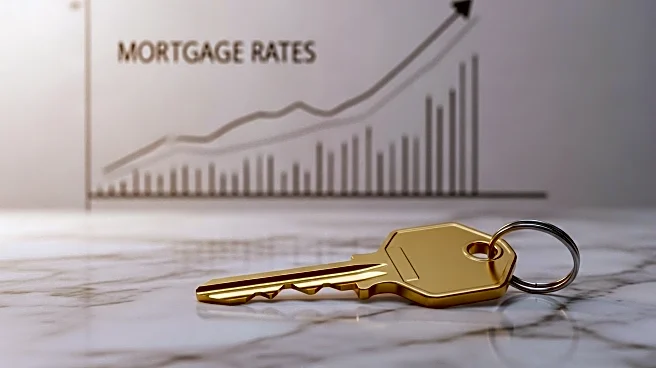What is the story about?
What's Happening?
The average rate on a 30-year U.S. mortgage has increased for the second consecutive week, reaching 6.34%, according to Freddie Mac. This follows a period of declining rates that had brought borrowing costs to their lowest level in nearly a year. The recent uptick in mortgage rates comes amid ongoing economic adjustments and market conditions. A year ago, the average rate was 6.12%, indicating a slight increase over the past year.
Why It's Important?
The rise in mortgage rates is significant for the U.S. housing market, as it affects affordability for homebuyers and could influence housing demand. Higher rates may deter some potential buyers, leading to a slowdown in home sales and impacting the broader real estate market. For existing homeowners, increased rates could affect refinancing decisions and overall financial planning. The trend also reflects broader economic conditions, including inflationary pressures and monetary policy adjustments by the Federal Reserve.
What's Next?
If mortgage rates continue to rise, it could lead to a cooling of the housing market, with potential implications for home prices and construction activity. Stakeholders, including homebuyers, real estate professionals, and policymakers, will be monitoring rate trends closely. The Federal Reserve's future actions on interest rates will also play a crucial role in determining the trajectory of mortgage rates and their impact on the economy.















